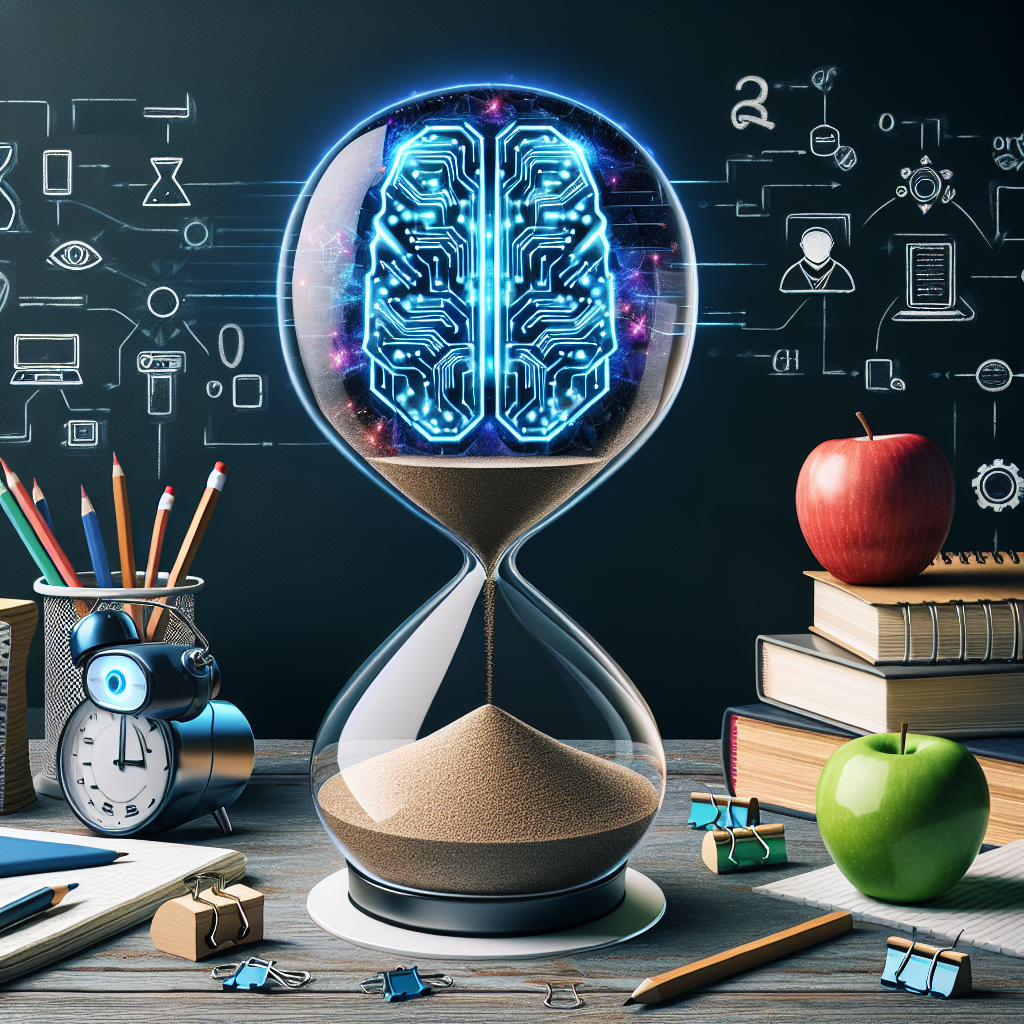Artificial Intelligence (AI) has transformed various industries, and education is no exception. One area where AI is making a significant impact is in lesson planning. With the help of AI-powered tools, teachers can now save time and create more personalized lesson plans for their students. In this article, we will explore how AI is revolutionizing lesson planning and the benefits it brings to educators.
AI-powered lesson planning involves using machine learning algorithms to analyze data and provide insights that can help teachers create more effective lesson plans. These tools can automate various aspects of the planning process, such as curriculum mapping, assessment design, and student grouping. By leveraging AI, teachers can focus more on teaching and less on administrative tasks, ultimately improving student outcomes.
One of the key benefits of AI-powered lesson planning is the ability to create personalized learning experiences for students. By analyzing student data, such as performance on assessments and engagement in the classroom, AI can provide recommendations for individualized lesson plans that cater to each student’s unique needs and learning styles. This level of personalization can help students stay engaged and motivated, leading to better academic performance.
Another advantage of AI-powered lesson planning is the ability to save teachers time. Planning lessons can be a time-consuming and tedious task, especially when teachers have to create multiple lesson plans for different classes and grade levels. AI tools can automate the process of generating lesson plans, saving teachers hours of work and allowing them to focus on more important aspects of teaching, such as delivering instruction and providing feedback to students.
In addition to saving time, AI-powered lesson planning can also help teachers improve their instructional practices. By analyzing data on student performance and engagement, AI can provide insights into which teaching strategies are most effective and which areas may need improvement. This feedback can help teachers refine their lesson plans and teaching methods, ultimately leading to better outcomes for students.
One of the main concerns with AI-powered lesson planning is the potential for bias in the data and algorithms used to generate lesson plans. AI systems are only as good as the data they are trained on, and if the data is biased or incomplete, the recommendations provided by the system may also be biased. It is important for educators to be aware of this potential bias and take steps to mitigate it, such as using diverse datasets and regularly evaluating the performance of the AI system.
Despite these challenges, the benefits of AI-powered lesson planning far outweigh the potential risks. By leveraging AI tools, teachers can save time, create personalized learning experiences for students, and improve their instructional practices. As AI technology continues to advance, we can expect to see even more innovative tools and solutions that will further enhance the teaching and learning experience.
FAQs:
1. How does AI-powered lesson planning work?
AI-powered lesson planning works by using machine learning algorithms to analyze data on student performance, engagement, and other factors. The AI system then generates recommendations for personalized lesson plans based on this data, taking into account each student’s unique needs and learning styles.
2. What are the benefits of AI-powered lesson planning?
Some of the benefits of AI-powered lesson planning include saving teachers time, creating personalized learning experiences for students, and improving instructional practices. AI tools can automate various aspects of the planning process and provide insights that can help teachers create more effective lesson plans.
3. What are some potential challenges with AI-powered lesson planning?
One potential challenge with AI-powered lesson planning is the potential for bias in the data and algorithms used to generate lesson plans. It is important for educators to be aware of this potential bias and take steps to mitigate it, such as using diverse datasets and regularly evaluating the performance of the AI system.
4. How can teachers incorporate AI-powered lesson planning into their teaching practice?
Teachers can incorporate AI-powered lesson planning into their teaching practice by using AI tools and platforms that are specifically designed for educators. These tools can help teachers save time, create personalized lesson plans, and improve their instructional practices.
In conclusion, AI-powered lesson planning is revolutionizing the way teachers plan and deliver instruction. By leveraging AI tools, educators can save time, create personalized learning experiences for students, and improve their instructional practices. As AI technology continues to advance, we can expect to see even more innovative solutions that will further enhance the teaching and learning experience.

